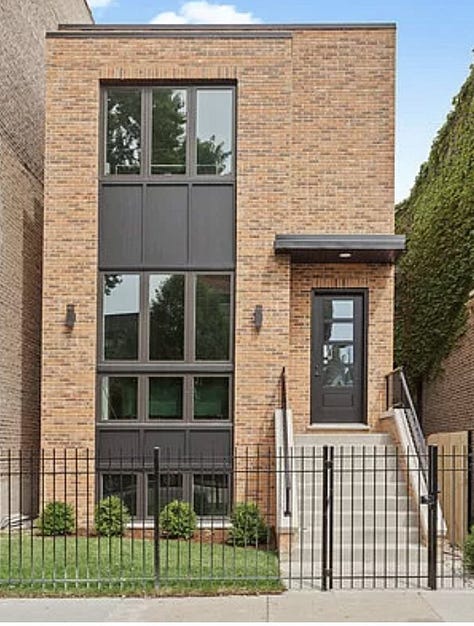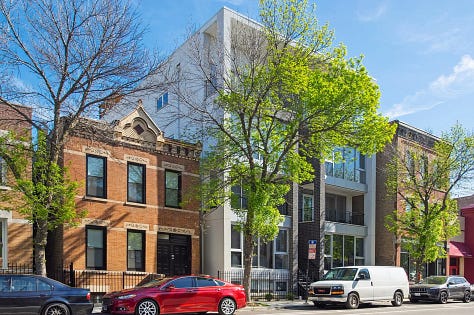Our city is becoming unaffordable. #Transfer tax.






When I moved to Chicago in 1973 I first lived in Roseland on the far south side.
Then Austin on the west side.
Two years later I moved to Logan Square, a north side working class neighborhood, close to the Stewart-Warner factory where I had a job as a wire winder.
In those days it wasn’t very hard for me to find an affordable apartment to rent in a neighborhood with a package store, school and a factory.
Fifty years later things have changed.
Neighborhood schools are mostly a thing of the past.
Chicago’s industrial base is no longer.
The package stores with a bar in the back have been replaced by lounges that serve fancy cocktails with hand crafted ice.
The Stewart-Warner factory where I got my first job in Chicago moved their production to Mexico and the seven story factory building torn town, replaced by high-priced condos.
But back in 1973 Chicago was an affordable city compared to New York or L.A.
I don’t want to romanticize things though. In 1973 the first Mayor Daley was still running a powerful and corrupt political machine and the city was as segregated as anywhere in the Jim Crow south.
Police violence was rampant and out of control.
Just seven years earlier Martin Luther Kings was stoned at an open housing march and four years earlier Black Panther leader Fred Hampton was killed by police while asleep in his west side apartment.
And as a result of the loss industrial jobs and police violence hundred of thousands of African Americans left the City over the past two decades.
They have been replaced in many cases by those earning six figures. Formerly working class affordable neighborhoods have become gentrified.
Over a year ago I began posting pictures on Facebook from my own Logan Square community of million dollar homes that have replaced affordable multi-family three flats and Chicago’s traditional Worker Cottages and bungalows.
Affordable housing in Chicago, and the nation, has reached crisis proportions.
According to The National Low-Income Housing Coalition:
There is a shortage of more than 7 million affordable homes for our nation's 10.8 million plus extremely low-income families.
There is no state or county where a renter working full-time at minimum wage can afford a two-bedroom apartment.
Seventy percent of all extremely low-income families are severely cost-burdened, paying more than half their income on rent.
Chicago’s Mayor Brandon Johnson and some in City Council have responded positively to demands of community organizations for a transfer tax on the sale of houses over a million dollars.
The dollars raised would go to services for the homeless and those needing affordable housing.
The City Council should pass it and the Mayor should sign it.
In fact I remember proposing it over a decade ago at my alderman’s community forum held in response to Mayor Rahm Emanuel’s budget.
I was ignored.
But more needs to be done than passing a transfer tax.
Like building thousands of units of government funded affordable housing for the thousands in our neighborhoods that have been forced out by gentrification.
There are a few such projects, but it is moving way too slow.
It took ten years to build the Lucy Parsons Apartments, an affordable apartment building of a hundred one, two and three bedroom units, in Logan Square next to the CTA train station.
Ten years!
But passing a transfer tax would certainly be a good thing.



